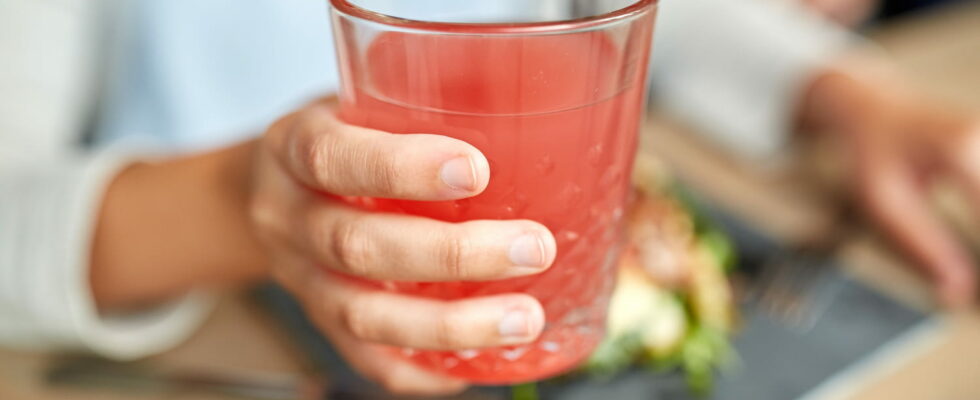Particularly recommended for women as they age.
Our bones become fragile as we age. In women, the risk of fractures and osteoporosis increases at menopause, around the age of 50.Among women who are 50 today, one in three or four will have a fragility fracture by the end of their lives.“, insists Dr. Florence Tremollières, a doctor at the Menopause and Bone and Metabolic Diseases Center at Toulouse University Hospital, to Inserm.
One strategy to prevent bone loss is to consume certain beverages that have beneficial effects on bones. In a study published in the journal Food & Functionresearchers from Chung Shan Medical University (Taiwan) divided 24 postmenopausal women into two groups. The first group was to consume 100 ml of a juice for 8 weeks (2 months) while the second group was to take a so-called “placebo” drink.
Anthropometric measurements (reflecting nutritional and skeletal status) and blood samples were taken at the first, second, sixth, eighth and tenth weeks and showed, in the women in the first group, a clear improvement in several parameters, including bone mineral density (BMD), levels of alkaline phosphatase (enzymes present in bone tissue) and the level of oxidative stress in bone cells.Consumption of this juice has shown a positive modulating effect on bone loss by enhancing antioxidant activities. It can therefore be recommended to treat various bone-related disorders, especially osteoporosis“, the researchers say in their study. In fact, the main ingredient of this juice has a double effect:
→ Antioxidant: it helps protect bones from aging.
→ Anti-osteoclastogenic: it participates in bone remodeling.
This famous drink is none other than onion juice, an excellent source of flavonoids (especially quercetin, a great antioxidant), vitamin C, vitamin B, calcium, phosphorus and magnesium. It is possible to make it yourself using a juice extractor. All colors of onions can be used, although red onions have the most quercetin. Choose very dry onions, whose peels do not contain black spots (a sign of decomposition) and which are not starting to sprout. If the taste puts you off, it is possible to incorporate it into lemon or carrot juice.
